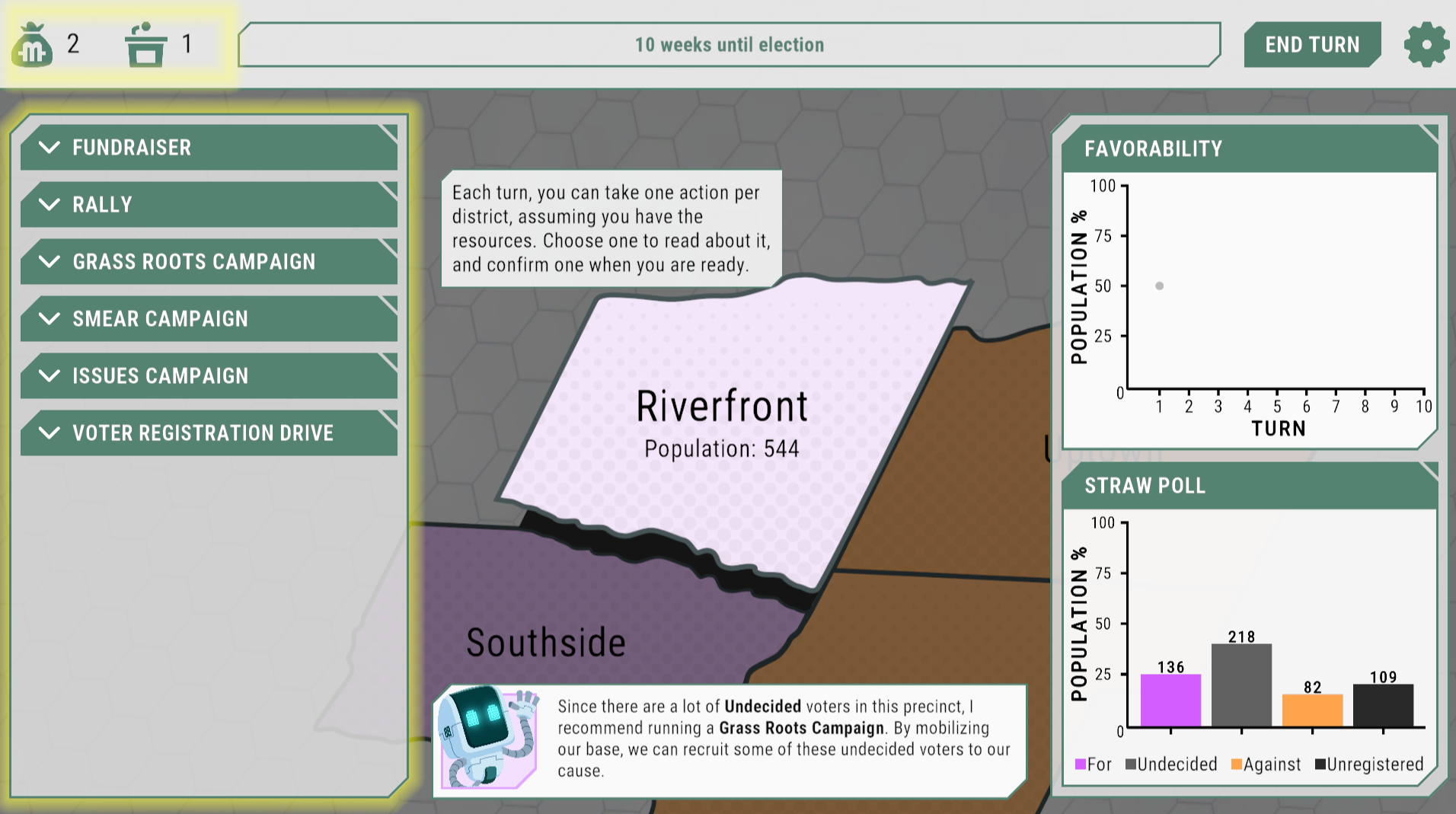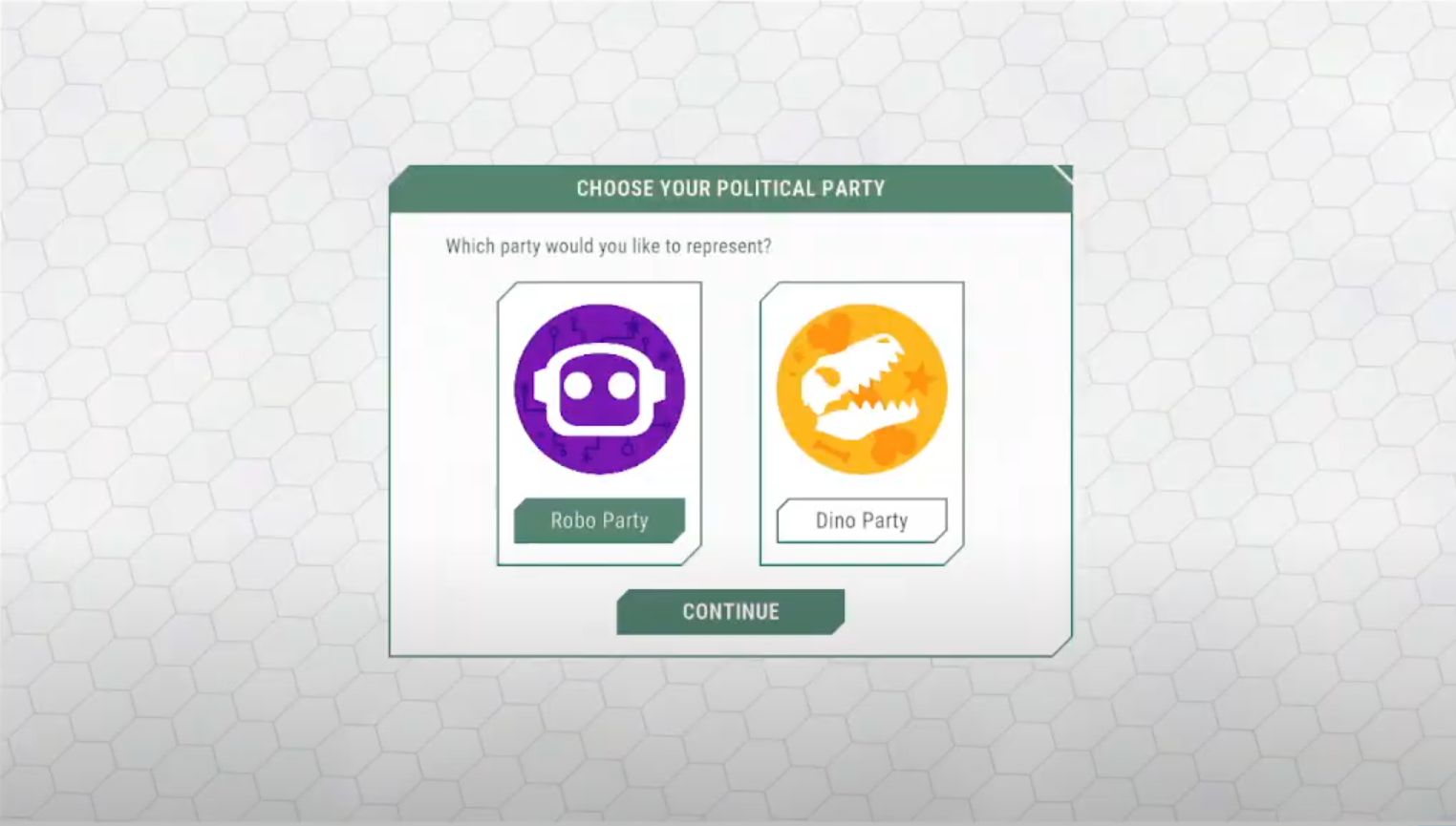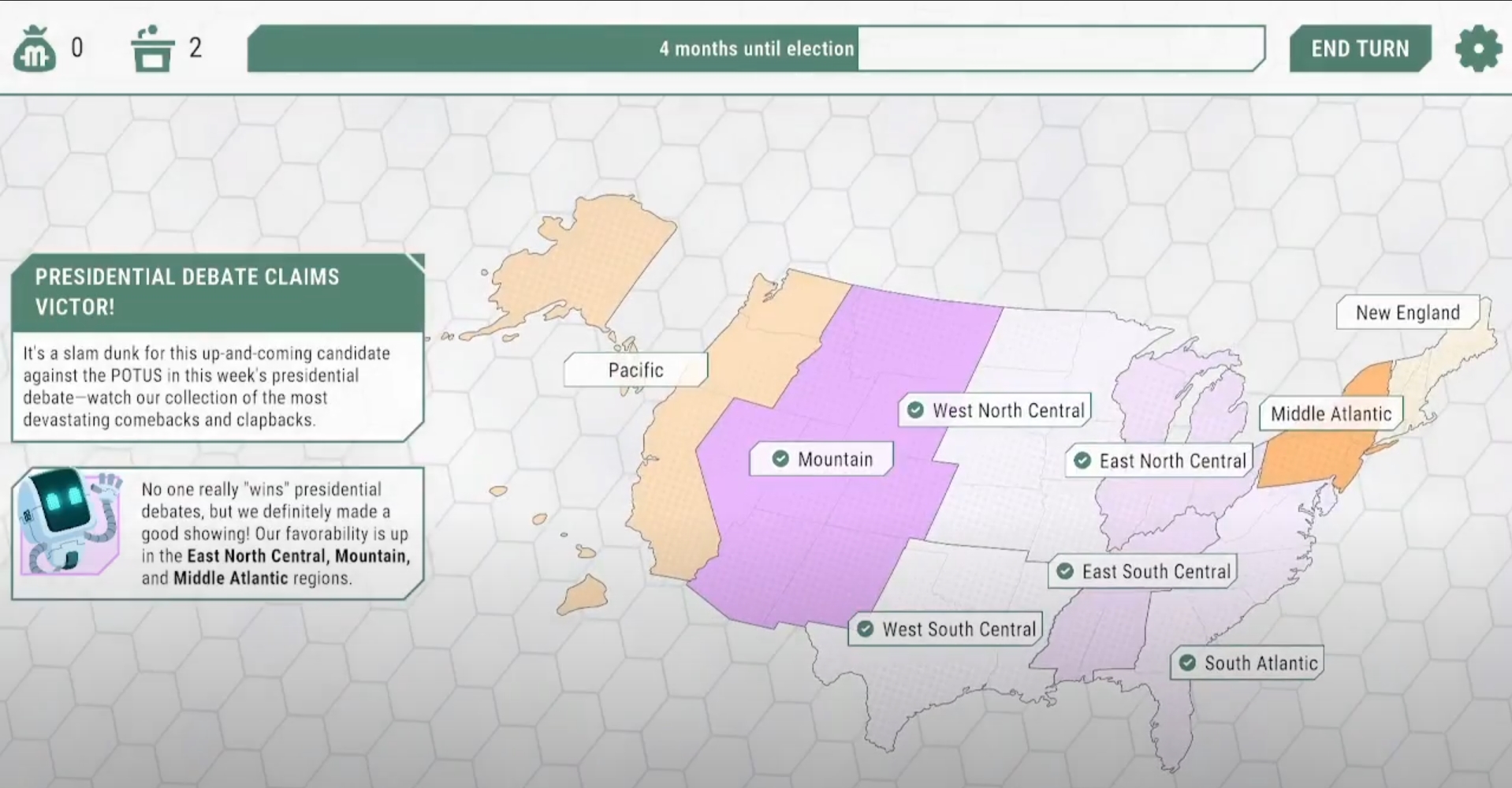Learning Objectives
Social Studies Objectives:
· The student can explain how the Electoral College figures into the electoral process.
· The student can explain how media and public opinion affect the election process.
· The student can explain how local and national campaigns are conducted.
· The student can explain how campaign funding figures into the electoral process.
· The student can analyze various factors affecting the political process.
Computational Thinking Objectives:
· The student can break down data, processes, or problems into smaller parts.
· The student can make a problem more manageable by identifying and reducing unnecessary detail.
· The student can identify patterns, trends, and regularities in a given data set. The student can utilize these patterns to make predictions and inform actions.
· The student can develop a set of steps or instructions to solve a complex problem. The student can instigate a series of actions in sequence to solve said problem.
· Through trial, error, and iteration the student can evaluate the effectiveness of a solution and propose changes.
About Operation: ELECT - A Computational Thinking Game
Operation: ELECT is a strategic social studies game of politics, press, and the election process. As a campaign manager, you’ll compute your way through five levels of government elections and help your candidate secure their spot in the history books. You’re in control—from fundraisers to smear campaigns, and from the humble city council to the United States presidency. Secure votes, outwit your opponent, and tackle the Electoral College head-on in this engrossing game of candidates and computational thinking.
Standards
Media




Game Resources
In addition to full implementation support, the K20 Center provides the following documents to help instructors effectively integrate Operation: ELECT - A Computational Thinking Game into their classrooms:
K20 Game Based Learning
To use K20 Games in your classroom free of charge, please click the button below and create an account on the K20 Game Portal.
Get GamesGame Support
If you have an issue with any GBL product, click the button below to visit our support page. From there, you can view frequently ask questions, access useful guides, or contact support.
Request Support

